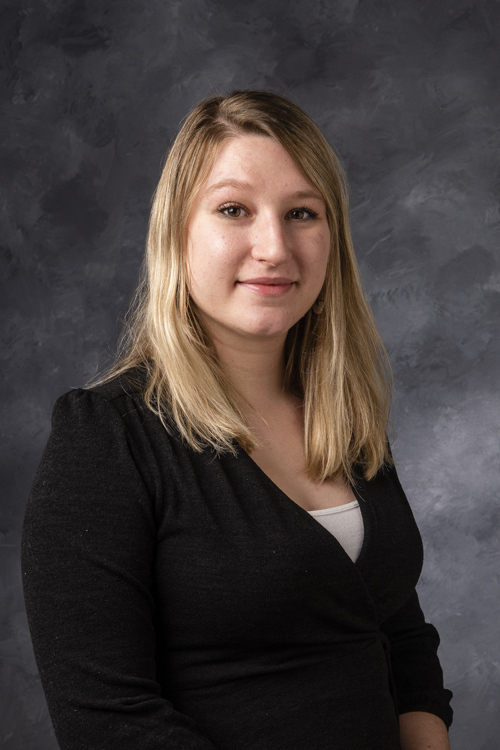
Maria Chusin, Undergraduate student, Art History, Printmaking
Investigates art crimes
• Hometown: Highland Park, IL
• Faculty mentor/advisor: Brenda Longfellow, Associate Professor and Division Head, Art History
• What is your degree program and expected graduation date? BA Art History, BFA Printmaking, expected graduation May 2020
• Please describe your research: I study the dark side of the global art market, focusing on how trends in art collecting not only impact the price of artworks, but also motivate the creation of fake artworks that are sold as authentic. The high demand for antiquities in the market also leads to the clandestine looting of archeological sites. I am investigating the twin impacts of fakes and illegally excavated artworks on the art market as well as how these crimes cause the destruction or misrepresentation of world cultural heritage.
• In simple terms, why does this research matter? When fake art objects are believed to be authentic, it alters our collective understanding of the past and falsifies cultural heritage. The looting of art objects also has dire consequences; the
context of stolen objects is destroyed when looters dig in secret, and historical knowledge that could be gained is forever lost. Ultimately, art auction houses, museums, and collectors must be confronted with questions of the ethicality of ignoring suspect origins of ancient artwork.
• How soon after starting at the University of Iowa were you able to participate in research? My research into art crime began my junior year of undergrad with coursework that gave me the opportunity to examine and write about an Ancient Greek vase that belonged to a local museum with a suspicious ownership history. Currently, I have an ICRU fellowship working with Professor Longfellow to grow the course she teaches on the art market. The research work I do now, specifically examining artwork from recent auction house catalogues, will become my honors thesis.
• How has being involved in research made you more successful at the University of Iowa? Being involved in research that I personally feel so passionate about motivates me to do my best
work. Not only am I interested in understanding the ways in which art crime is perpetrated, I also deeply care about the ethical treatment of art objects and reforming the art world so financial motivations don’t influence laws or standards.
• What are your career goals and/or plans after graduation? I hope to pursue graduate school in the future. However, in the meantime, I plan to become familiar with the art world by trying to work in galleries or museums. I am also contemplating
working in the legal field because of my interest in the laws that regulate the sale and movement of artwork.
Banner location: not on display—
